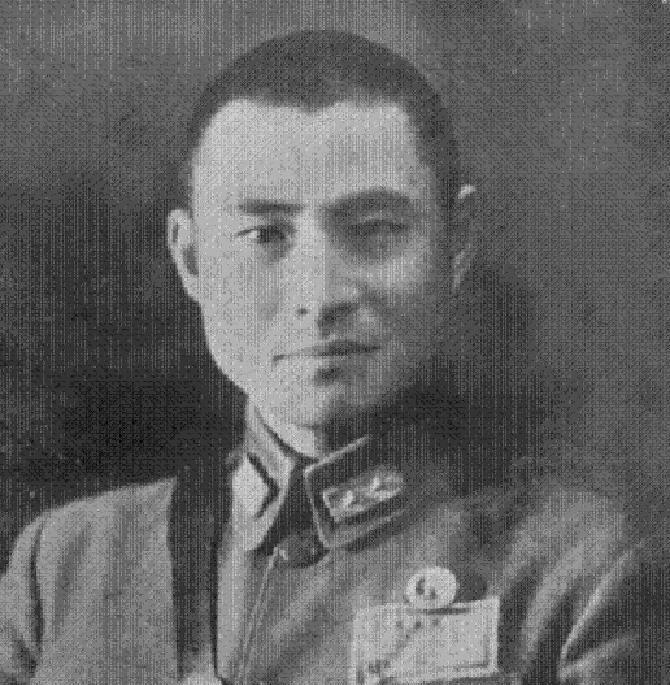In 1975, China granted amnesty and release to all the war criminals of the Nationalist army who were in custody at that time, which was the seventh and last amnesty for the war criminals of the Nationalist army after the founding of New China. In the process of this amnesty, in view of the fact that the war criminals of the Nationalist army who were detained at that time had basically been detained for more than 25 years and had entered the old age, it was decided after study that all of them would be granted amnesty and release, except for a few. As a result, some stubborn ideologies and stubbornness, and war criminals of the Nationalist army who had refused to accept reform were granted amnesty. Today, let's talk about the 3 die-hard war criminals who were finally pardoned in 1975 and see who they are. How old were they at the time?

The first is Huang Wei, a native of Guixi, Jiangxi, born in 1904, and a general in the first phase of the Whampoa Military Academy. In December 1948, Huang Wei, who was then the commander of the 12th Corps of the Nationalist Army, was completely destroyed in the Battle of Huaihai and then became a prisoner of war. Soon after, Huang Wei was sent to the War Criminals Management Center for rehabilitation. However, Huang Wei's performance is very negative, which can be described as dead-hearted, he is not only stubborn in his thinking, but also evades reform in a different way, not only sneering at war criminals who show positive performance, but even researching an impossible "perpetual motion machine" in the war criminal management center.
Due to Huang Wei's die-hard performance, he was repeatedly unaffected by amnesty, and Du Yuming (a Shaanxi Mizhiren, a huangpu general of the first phase) who had been captured with him in the Battle of Huaihai was released by amnesty in 1959. Later, as he grew older and under the careful guidance of the staff, Huang Wei's thinking changed to a certain extent. In 1975, Huang Wei was reborn as one of the last amnesty war criminals, who was 71 years old and had been imprisoned for almost 27 years. In 1989, Huang Wei died of illness in Beijing at the age of 85.
The second is Liu Zhenxiang, a native of Fangchenggang, Guangxi, born in 1906, and a general of the fifth term of the Whampoa Military Academy. In November 1948, Liu Zhenxiang, who was then the commander of the 64th Army of the Nationalist Army, was captured in the Battle of Huaihai and was soon sent to the War Criminals Management Center for rehabilitation. During the transformation, Liu Zhenxiang did not have obvious emotions like Huang Wei, but he was still very unconvinced in his heart. Before being captured that year, Liu Zhenxiang was still wearing a military coat and a medal to prepare to die to the end, and now he has become a war criminal who has been reformed, his thinking is still stubborn, and he is a thorn in the war criminal management center.
During the period of reform, Liu Zhenxiang was very dissatisfied with the special preferential treatment of Japanese war criminals who did not have to participate in labor, and even found an excuse to fight with Japanese war criminals, causing confusion in the war criminals management center. It is conceivable that Liu Zhenxiang's negative performance must not have had anything to do with amnesty, so it was not until 1975 that Liu Zhenxiang was finally released by amnesty, when he was 69 years old and also detained for almost 27 years. In 1986, Liu Zhenxiang died of illness in Guangxi at the age of 80.
Finally, there is Wen Qiang, a native of Changsha, Hunan Province, born in 1907, and a general in the fourth term of the Whampoa Military Academy. In January 1949, Wen Qiang, who was then the deputy chief of staff of the Lieutenant General of the Xuzhou General Advance Command of the Nationalist Army, was captured during the Battle of Huaihai and was quickly sent to the War Criminals Management Center for reform. During the transformation, Wen Qiang behaved very rigidly, which had a lot to do with his early experience. Wen Qiang had been a division commander of the Red Army, a cousin to the leader, Zhou Gong was his introduction to the party, and Lin Zong was his subordinate. Therefore, Wen Qiang took advantage of this to die unrepentant and realize very hard.
At that time, Wen Qiang put all the responsibility on others, believing that others did not educate him well, put him on the wrong path, and eventually led to him becoming a imprisoned war criminal. As a result, The die-hard Wen Qiang was released as the last group of amnesty war criminals until 1975, when he was 68 years old and imprisoned for 26 years. In 2001, Wen Qiang died of illness in Beijing at the age of 94.